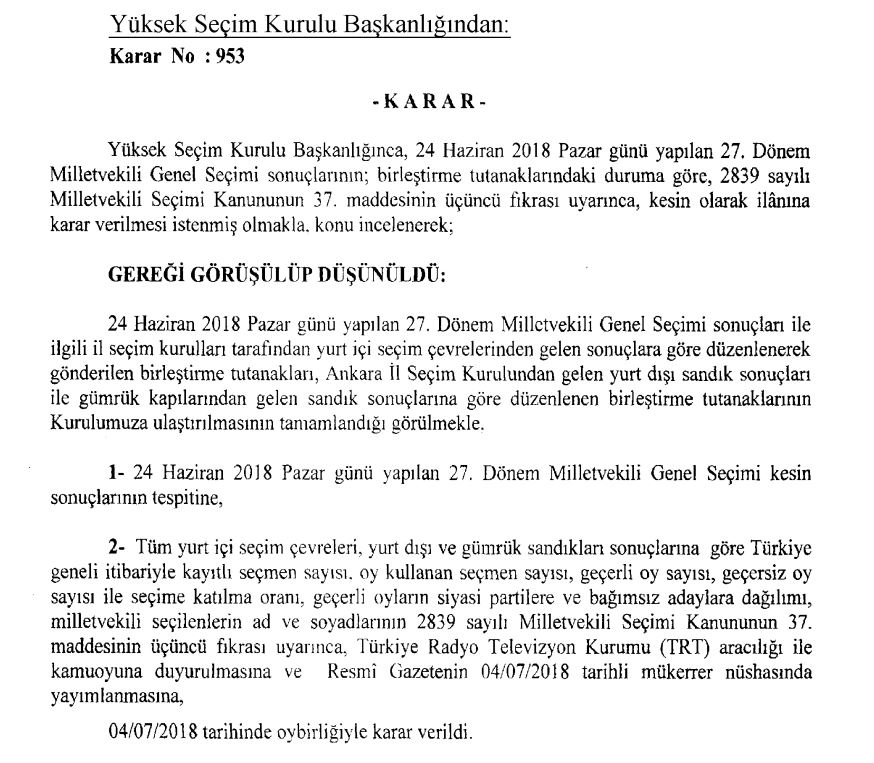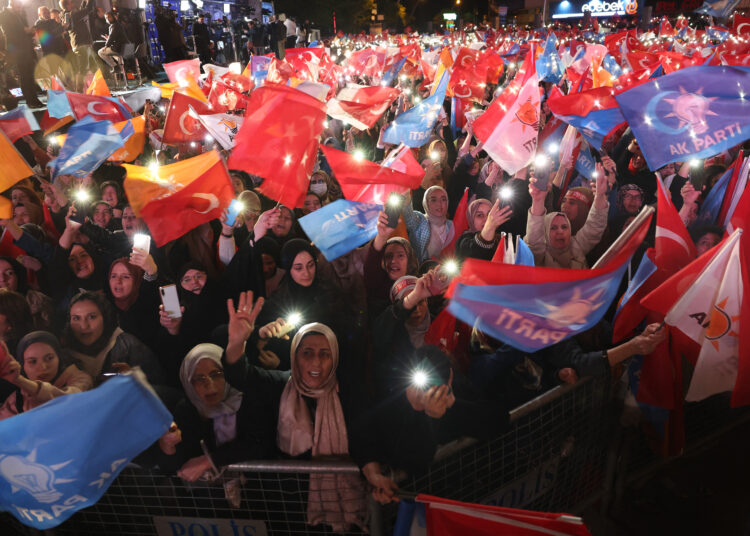Levent Kenez/Stockholm
Turkey’s Supreme Election Board (YSK) has not yet announced the official results of the presidential and parliamentary elections held on May 14 and has prohibited access to the 2018 election data on its website. The opposition claims that the YSK is trying to prevent possible fraud in the elections from coming to light before the May 28 runoff.
Since the official results of the parliamentary elections, which were supposed to be announced last Friday according to the election calendar declared by the YSK were not announced, the Turkish parliament, which was expected to start a new legislative session on Monday, May 22, did not open and the swearing-in ceremony could not be held, despite the fact that the people elected as deputies have received their certificates of election. According to the executive presidential system adopted in 2017, a person cannot be a deputy and a minister at the same time. But currently, all but two cabinet ministers were elected as MPs on May 14 and continue to serve as ministers.
Since the YSK has not announced the official 2023 election results and the 2018 election results are no longer accessible, a comparison of data for ballot box security is impossible to carry out. For instance, election analysts find it suspicious that the far-right Nationalist Movement Party (MHP), which supports the government, has increased its votes in Kurdish-populated areas in southeastern Turkey, also claiming that opposition party representatives were not given the time required to check the ballot box results before the runoff.
The analysts also claim that ultranationalist presidential candidate Sinan Ogan’s percentage of votes is questionable. They are of the opinion that Ogan’s almost homogeneous distribution of votes throughout the country is incompatible with Turkey’s sociological and ethnic realities. Ogan announced earlier this week that he would support President Recep Tayyip Erdogan in the runoff on Sunday.
Many voters who have expressed doubts about the election results also find it suspicious that the number of voters in the region that was devastated by two powerful earthquakes in February has increased despite the tremendous loss of life and the fact that tens of thousands of residents moved to other cities, stating that it would be impossible for the increase to be attributed to an increase in the population growth rate.
Erdogan increased his vote in the earthquake-hit region despite his failure to deliver aid and send rescue teams immediately after the disaster struck.
Turkey’s main opposition Republican People’s Party(CHP) announced that they had detected inconsistencies in 2,269 ballot boxes in the presidential election and in 4,825 ballot boxes in the parliamentary election.
The YSK announced the official results of the elections held on June 24, 2018, 10 days later.:

Meanwhile, prominent journalist Can Ataklı voiced a claim that had previously appeared on the TR724 news website before the elections on his YouTube channel yesterday. Ataklı told viewers that software and election experts found that hundreds of thousands of people voted many times with fictitious IDs according to a report submitted to Ekrem İmamoğlu, mayor of Istanbul and the opposition vice presidential candidate. TR724 previously claimed that this fraud was managed by Interior Minister Süleyman Soylu, who also runs the ministry’s Directorate General of Population and Citizenship Affairs, the authority that issues national IDs.
On Tuesday informatics expert Füsun Nebil announced the results of her research, which she has been conducting since October with a team of academics and population experts. According to Nebil, there is an inconsistency between the population rates announced by the Turkish Statistical Institute (TurkStat) and the number of voters announced by the YSK. Nebil says there has been an unexplained increase in the number of voters in the 16 years from 2007 to 2023. She says the population increased by 15 million and the number of voters increased by 21.4 million during this period. This indicates a surplus of approximately 10.5 percent in the total number of voters, which is around 61 million. According to Nebil, this increase in the number of voters cannot be explained by young people who obtained the right to vote and foreigners who became new citizens. The YSK did not respond to Nebil’s questions.
The joint observation mission from the OSCE Office for Democratic Institutions and Human Rights (ODIHR), the OSCE Parliamentary Assembly (OSCE PA) and the Parliamentary Assembly of the Council of Europe (PACE) said the incumbent president and the ruling parties enjoyed an unjustified advantage during Turkey’s May 14 elections, in a statement of preliminary findings and conclusions published on May 15.
The statement also included the fact that the continued restrictions on fundamental freedoms of assembly, association and expression hindered the participation of some opposition politicians and parties, civil society and independent media in the election process.
The OSCE statement also said the process for handling complaints at all levels of the election administration lacked transparency and that Supreme Election Board decisions that were published were generally not sufficiently reasoned.












